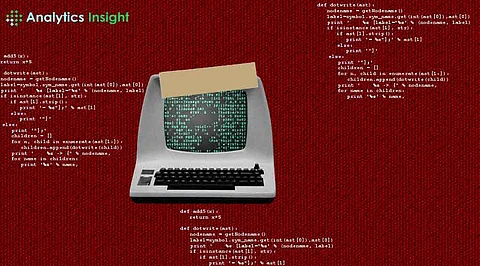

Programming skills match the pace of technological development and business needs. Technological innovation in artificial intelligence, system performance, and cloud infrastructure in 2025 creates the demand for some of the programming languages and tools. Job board trends, industry analyses, and developer surveys—like Stack Overflow's 2024 report—indicate Python, Rust, and cloud skills are leading the way.
This article discusses the most in-demand programming skills for 2025, along with their applications and relevance in the technology ecosystem.
Python is the undisputed 2025 general-purpose data science and AI-fueled application language. TensorFlow and PyTorch, two Python libraries most widely used for machine learning, are an indication of how easy Python is and how rich in libraries. It is utilized by financial, healthcare, and technology industries for predictive model development and automation, and Indeed job postings indicate a 30% increase in Python job postings since 2023. Readability and rich ecosystem: NumPy, Pandas, make it easy for beginners and experts.
Apart from AI, Python powers web development with Django and Flask and can efficiently handle backend operations. Combined with generative AI tools such as GitHub Copilot X, it boosts productivity and becomes a necessity. The versatility of the language across industries makes it a top skill, and the demand will only increase as AI adoption keeps increasing in 2025.
Rust becomes a core competency by 2025, prized for its performance and memory safety when developing systems. Employed by technology giants Microsoft and AWS, Rust eliminates common bugs—null pointer dereferences, data races—without slowing down. 85% of the coders would use it for high-performance, secure applications, such as operating systems and game engines, as reported by the 2024 Rust Survey.
Projects like Linux kernel modules, recoded in Rust, illustrate its growing visibility. Its steep learning curve, based on ownership concepts, discourages some, but there is a growing demand for low-level, stable code effort. Up to 2025, Rust's blend of C++-compatible performance and modern safety concepts makes it a critical skill for systems programmers.
JavaScript remains the pillar of web development in 2025, powering interactive frontends with React and Vue.js frameworks. Node.js is also increasingly being employed for server-side development, and npm's 2 million packages speed up the development process. TypeScript, a safer version of JavaScript, is being used more and more to develop big apps since it is not willing to accept runtime errors. The stats of LinkedIn report a 25% rise in TypeScript jobs from 2023, so even more companies are using it now.
Both languages adapt to serve in-time needs, think chat apps and streaming websites, enabled by WebAssembly facilitation of almost native performance. Ubiquity of browser technology ensures long-term demand, with TypeScript dominating advanced, long-term codebases in 2025.
Go, or Golang, shows up in 2025 in its brevity and concurrency, perfect for scalable microservices. Born at Google, its lightweight footprint makes it perfect for cloud-native applications, with such technologies as Kubernetes built upon it.
Both start-ups and companies prefer to implement Go for backend services and APIs, making use of goroutines to achieve multitasking. Being compiled gives it the speed, and low-level syntax makes sure that it is simple to enter. Go's place in being able to supply high-performance cloud-based solutions by 2025 makes it a valuable skill.
Cloud skills set the technology tone for 2025, with AWS, Azure, and Docker driving job demand. Being certified in these systems, according to CompTIA's 2024 report, makes one 40% more hirable, as companies shift to hybrid environments.
AI software revolutionizes coding by 2025, with prompt engineering and model integration features being the latest trend. GitHub Copilot X, which is powered by GPT-5, provides code suggestions, with Python and JavaScript being needed for personalization. 60% of coders will employ AI assistants, who will become more effective, as per the IEEE Computer Society.
This shift takes API skills and fine-tuning pre-trained models, typically through libraries like Hugging Face's Transformers. Where AI eliminates grunt work repetition, expertise on how to leverage such tools becomes a competitive edge, changing the usual coding work in 2025.
The most in-demand programming skills of 2025: Python, Rust, JavaScript/TypeScript, Go, cloud tools, and AI integration, are a technology landscape that is AI-powered, performance-focused, and scalable. Each skill addresses certain requirements, from data analysis to secure systems and web innovation. Skills in such domains are industry trend aligned, and thus they are relevant in a rapidly evolving digital era.
